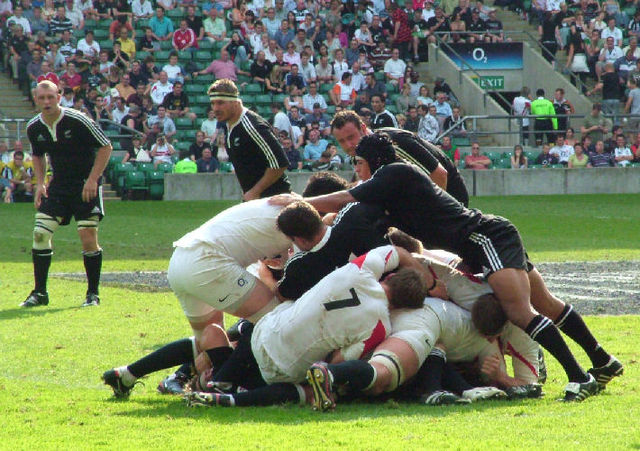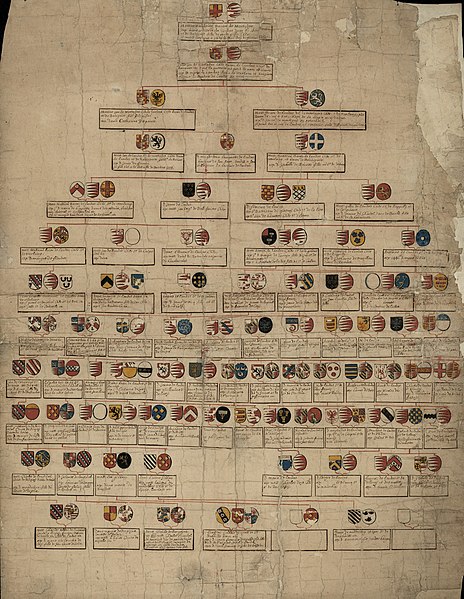Whakapapa, or genealogy, is a fundamental principle in Māori culture. Reciting one's whakapapa proclaims one's Māori identity, places oneself in a wider context, and links oneself to land and tribal groupings and the mana of those.
Māori woman with a representation of the Waikato Ancestress "Te Iringa"
The New Zealand Māori rugby union team (in black) playing England Saxons in the 2007 Churchill Cup. Players now have to have their whakapapa verified.
Genealogy is the study of families, family history, and the tracing of their lineages. Genealogists use oral interviews, historical records, genetic analysis, and other records to obtain information about a family and to demonstrate kinship and pedigrees of its members. The results are often displayed in charts or written as narratives. The field of family history is broader than genealogy, and covers not just lineage but also family and community history and biography.
The family tree of Louis III, Duke of Württemberg (ruled 1568–1593)
The family tree of "the Landas", a 17th-century family
Twelve generations patrilineage of a Hindu Lingayat male from central Karnataka spanning over 275 years, depicted in descending order
A Medieval genealogy traced from Adam and Eve






